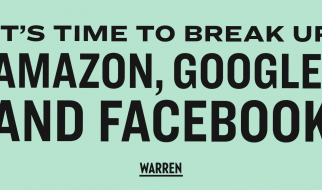Understanding the underlying principles of life is critical to living your best life
 Photo by Dino Reichmuth on Unsplash
Photo by Dino Reichmuth on Unsplash
Everything we do in life is a choice ? most of us realize that. Everything we don?t do is also a choice. Every day we choose to do the same things that hardly move us closer to the real-life we want.
If the quality of our lives is shaped by the choices we make, and those we don?t make, then the secret of making wise choices is to live by core principles. A lot has been written about the principles for a meaningful and happy life for centuries. In his book, Ray Dalio, billionaire investor, hedge fund manager, philanthropist said, ?Principles are fundamental truths that serve as the foundations for behaviour that gets you what you want out of life. They can be applied again and again in similar situations to help you achieve your goals.?
These are a few you can use to refine your personal principles. The most important thing is that you develop your own principles and ideally write them down. ?Think for yourself to decide 1) what you want 2) what is true and 3) what you should do to achieve #1 in light of #2,? Ray writes.
Don?t spend your life preparing for life
Charles Darwin once said, ?A man who dares to waste an hour of time has not discovered the value of his life.? Life is too short if you spend it meaningfully and do what gives you a sense of accomplishment. Life is too long if you spend all your time worrying about the unpredictable future or the regrets of the past. You know it. Everyone knows it.
But strangely enough, only a few people consciously choose to live in the present every day. The future can provide hope, and the past can provide closure but focus on either one obsessively, however, quickly becomes deteriorating to your mental and emotional health.
In her collection of short essays, The Writing Life, Annie Dillard explains: ?How we spend our days is, of course, how we spend our lives. What we do with this hour, and that one, is what we are doing. A schedule defends from chaos and whim. It is a net for catching days. It is a scaffolding on which a worker can stand and labour with both hands at sections of time. A schedule is a mock-up of reason and order ? willed, faked, and so brought into being; it is a peace and a haven set into the wreck of time; it is a lifeboat on which you find yourself, decades later, still living. Each day is the same, so you remember the series afterwards as a blurred and powerful pattern.?
Accept your imperfection and vulnerabilities
Humans are inherently flawed. Perfection is beyond us. We are all, from close up, scared, unsure, full of regret, longing and error. This recognition should inspire compassion for ourselves. When you?re willing to be seen as someone who makes mistakes and has flaws, you?re essentially telling yourself being human isn?t something to be ashamed of. If you are constantly worried about your vulnerabilities, chances are you are paying too much attention to negative information.
The real world doesn?t reward perfectionists. It rewards people who get things done and those who make real progress. It?s easier to play to your strengths than wasting time on your imperfections. Bob Pozen, author of Extreme Productivity: Boost Your Results, Reduce Your Hours, argues that while perfectionism is a ?learned habit,? it can be an ?unlearned habit? if you work at it. No matter how many mistakes you make, or how slow you progress, you are still way ahead of people who spend most of their time making excuses because of their weaknesses.
Give yourself time in your life to wonder what?s possible and to make even the slightest moves in that direction. The alternative to perfection isn?t failure, it?s to make your peace with the idea that you are ?good enough?.
Life is not elsewhere; it is, fully and properly, here and now
We can?t change the past and we certainly can?t predict the future. The only thing within your control is today. The only important moment is the present moment. It?s natural to spend moments of thought in the past or in daydreams of the future. The danger is getting caught in both worlds. ?We?re living in a world that contributes in a major way to mental fragmentation, disintegration, distraction, decoherence,? says B. Alan Wallace.
For anyone who is deeply worried about the future, Seneca, a Roman stoic philosopher advises, ?Everyone hustles his life along and is troubled by a longing for the future and weariness of the present. But the man who ? organizes every day as though it were his last, neither longs for nor fears the next day? Nothing can be taken from this life, and you can only add to it as if giving to a man who is already full and satisfied food which he does not want but can hold. So you must not think a man has lived long because he has white hair and wrinkles: he has not lived long, just existed long. For suppose you should think that a man had had a long voyage who had been caught in a raging storm as he left the harbour, and carried hither and thither and driven round and round in a circle by the rage of opposing winds? He did not have a long voyage, just a long tossing about.?
There is no substitute for persistence
How persistent are you about pursuing what you really want? One of the most important secrets of success is learning to keep moving despite your doubts. There is probably no better example of persistence than the story of Abraham Lincoln. He failed in business at 21, lost a legislative race at age 22, failed in business again at 24, and lost a congressional race when he was 34.
At 45 he lost a senatorial race. He failed in an attempt to become Vice President at 47. But he was finally elected President of the United States at age 52. Lincoln never quit. Every failure was a stepping stone until he finally assumed the highest office in America. Don?t give up too soon. As long as you are still actively trying after every failure, you have not failed yet.
Give up the desire to be liked and accepted
People?s opinions of you are not who you are. Eric Hoffer, a moral and social philosopher once said, ?A man is likely to mind his own business when it is worth minding. When it is not, he takes his mind off his own meaningless affairs by minding other people?s business.?
It is human nature to want to be accepted, hence the insane pursuit of conformity. But you can make a conscious effort to stop giving a damn; to let yourself free. It?s a skill that needs to be practised like any other skill. Once you truly understand how to let go, you will see the world from an entirely different perspective.
The key to the good life you really need is giving a damn about what?s important to your growth, career and total well being. When you stop giving a damn about what people think, your self-confidence will definitely shoot through the roof faster than you can ever imagine. You?ll start to believe in yourself and what you can offer the world, without letting outside influences stop you or sway your decisions.
Life isn?t linear: not everything goes as planned
You won?t achieve every goal. But it?s important to make plans and move on. Spend just as much time learning what to do when things inevitably stray off your path as you do to create the plan in the first place.
Your best strategy when making a plan is to make contingency plans for the inevitable result that life will not unfold according to plan. Your plans for tomorrow, next month or next year may not unfold as you expect.
Don?t approach life with expectations of how things should or shouldn?t be. Don?t get attached to a plan on how things should or shouldn?t work. It?s alright to have goals, but you don?t have to be set on a particular outcome ? adapt when necessary.
Stop worrying about things you can?t control
We stress so damn much about things we can do nothing about ? the past, the future, people?s perception of us, their decisions, thoughts, their happiness, success, and every natural change around us. When you spend your time in ?what if? mode, wishing things had been different, you stop making progress.
We can only prepare ourselves today for what?s ahead. The only thing you have control over is your thoughts, decisions, attitude, and reactions. When you realise what?s within your control, life becomes easier to handle. It?s a brutal truth in life that some people refuse to accept.
You can influence people and circumstances but you can?t force change in others. If you find yourself worrying about things you can?t control, focus on changing your behaviour or adapting. By putting your effort on what you can impact, you can make a bigger difference.


